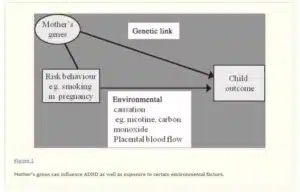How does Hyperbaric Oxygen Enhances Cognitive Function in Alzheimer’s and Mild Cognitive Impairment? It has been reported that environmental factors such as hypoxia could contribute to the pathogenesis of Alzheimer’s disease (AD). Therapeutics like hyperbaric oxygen treatment, which improves tissue oxygen supply and ameliorates hypoxic conditions in the brain, may be an alternative therapy for AD and amnestic mild cognitive impairment (aMCI). The present work aims to investigate the potential therapeutic effect of hyperbaric oxygen treatment for AD and aMCI.
This article explores How Hyperbaric Oxygen Enhances Cognitive Function treatment for Alzheimer’s disease (AD) and amnestic mild cognitive impairment (aMCI). The study involved 42 AD patients, 11 aMCI patients, and 30 control AD patients. The AD and aMCI patients received 40 minutes of hyperbaric oxygen treatment once a day for 20 days and were assessed using various neuropsychiatric assessments before and at 1-, 3-, and 6-month follow-ups after treatment.
The key findings of the study are as follows:
-
- Cognitive Improvement: One course of hyperbaric oxygen treatment significantly improved cognitive function in AD patients after 1-month follow-up, as assessed by the Mini-Mental State Examination (MMSE) and Montreal Cognitive Assessment (MoCA). aMCI patients also showed improvements in MMSE and MoCA scores, with sustained benefits observed up to 3 months.
-
- Activities of Daily Living (ADL): ADL scores significantly improved in AD patients after 1- and 3-month follow-up, suggesting enhanced daily living abilities.
-
- Comparison with Control: Compared to control AD patients who did not receive hyperbaric oxygen treatment, the treated AD patients demonstrated significant cognitive improvement after 1-month follow-up.
-
- Brain Glucose Metabolism: Some AD and aMCI patients exhibited improved brain glucose metabolism after hyperbaric oxygen treatment, as observed through fluorodeoxyglucose positron emission tomography (FDG-P) imaging.
The study suggests that hyperbaric oxygen treatment may offer a promising alternative therapy for AD and aMCI by temporarily improving cognitive function and daily living abilities. It also hints at potential preventive benefits for aMCI patients, possibly delaying the progression to AD. Safety concerns related to hyperbaric oxygen treatment were minimal in this study.
However, it’s important to note that the cognitive improvements observed were temporary, with benefits diminishing over time. Further research, including studies with larger sample sizes and longer follow-up periods, will be needed to fully understand the potential and limitations of hyperbaric oxygen treatment in the context of AD and aMCI therapy.
Metode: Kami merekrut 42 pasien DA, 11 pasien aMCI, dan 30 pasien DA kontrol dalam penelitian ini. Pasien AD dan aMCI diobati dengan oksigen hiperbarik selama 40 menit sekali sehari selama 20 hari dan dinilai dengan penilaian neuropsikiatri termasuk Mini-Mental State Examination (MMSE), Montreal Cognitive Assessment (MoCA), dan skala Aktivitas Kehidupan Sehari-hari (ADL) sebelum dan pada masa tindak lanjut 1, 3, dan 6 bulan setelah pengobatan. Pasien DA kontrol yang tidak diberi pengobatan oksigen hiperbarik memiliki profil klinis yang serupa dengan DA yang diberi pengobatan oksigen hiperbarik. Kami memeriksa 10 pasien AD / AMCI dengan tomografi emisi positron fluorodeoxyglucose.
Hasil: Dalam studi perbandingan diri, satu kali perawatan oksigen hiperbarik secara signifikan meningkatkan fungsi kognitif yang dinilai oleh MMSE dan MoCA pada pasien AD setelah tindak lanjut 1 bulan; perawatan tersebut juga secara signifikan meningkatkan skor MMSE pada tindak lanjut 3 bulan dan skor MoCA pada tindak lanjut 1 dan 3 bulan pada pasien aMCI. Skala ADL meningkat secara signifikan pada pasien AD setelah masa tindak lanjut 1 dan 3 bulan. Dibandingkan dengan pasien AD kontrol, MMSE dan MoCA pada pasien AD yang diobati dengan oksigen hiperbarik meningkat secara signifikan setelah masa tindak lanjut 1 bulan. Perawatan oksigen hiperbarik juga memperbaiki metabolisme glukosa otak yang berkurang pada beberapa pasien AD dan aMCI.
Conclusion for How Hyperbaric Oxygen Enhances Cognitive Function
Terapi oksigen hiperbarik (HBOT) has shown promise in enhancing cognitive function for individuals with Alzheimer’s disease (AD) and mild cognitive impairment (MCI). Research suggests that oxygen under increased atmospheric pressure can boost brain oxygenation, potentially alleviating cognitive decline. HBOT’s ability to improve blood flow, reduce inflammation, and promote neurogenesis may be key in mitigating AD and MCI symptoms. Although more studies are needed to fully understand its efficacy, HBOT represents a non-invasive and innovative avenue for addressing cognitive challenges associated with these conditions, offering hope for improved quality of life and cognitive outcomes in affected individuals.doe




